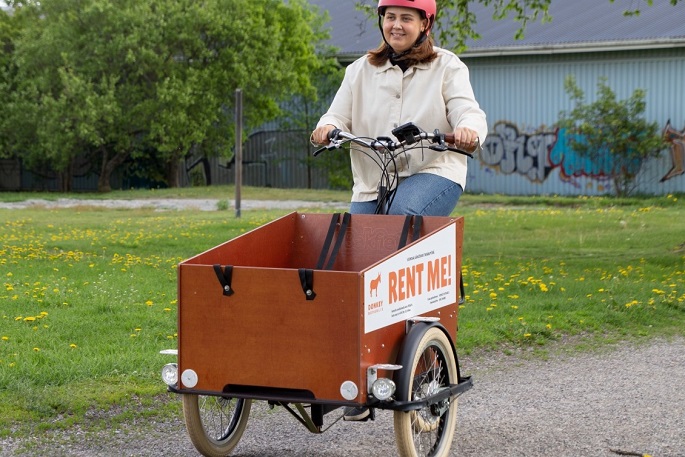Turku offers city dwellers cargo bikes on rent
Published : 05 Jun 2023, 22:58
Updated : 06 Jun 2023, 01:43
The City of Turku offered its residents shared cargo bikes on rent from Tuesday, said the city in a press release on Monday.
Turku will be the first Finnish city to have shared cargo bikes on its streets and the city dwellers can rent the bikes for round the year at a price of three euros per hour.
Cargo bikes are electrically assisted bicycles that can carry loads weighing a few tens of kilograms. The bikes can also be used to transport children, as the cargo bikes have seat belts.
“Shared cargo bikes have been requested because they are suitable for a wide range of uses. Bikes can be used to transport children or grocery shopping, for example,” said Stella Aaltonen, Project Manager at the City of Turku.
The cargo bikes operate separately from the fölläri city bike system, but the right to use the bikes can be redeemed from Donkey Republic's app, just like the city bikes.
In the app, the positions of the cargo bikes are distinguished from the rest by the lightning symbol. Cargo bike pricing starts at €3 per hour, and the longer you rent the bike, the cheaper the hourly rate gets.
Initially, Turku residents will have access to four cargo bikes. The range includes two three-wheeled bikes and two two-wheeled cargo bikes.
The service provider for the cargo bikes coming to Turku is the Finnish KaaKau Oy.
Load bikes can initially be rented at the bus station, Ikituuri and Föri bike stations. In addition, one cargo bike station is planned for Kupittaa. The bike can be returned to any station assigned to the cargo bikes. In the application, people can check the location of these other stations when renting.
“We want to be involved in expanding and developing cycling opportunities in Turku. We are developing the service agilely based on user feedback together with the City,” said Aleksanteri Repo, CEO of KaaKau.
The cargo bikes are part of the Scale Up project funded by the European Commission.


